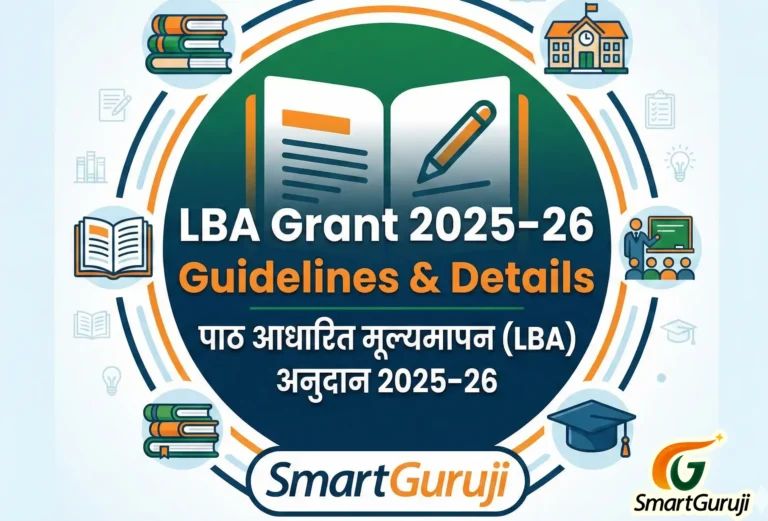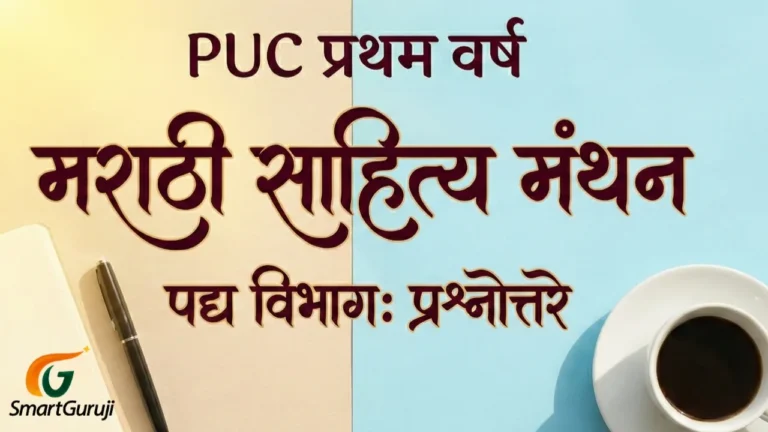CLASS – 4
MEDIUM – MARATHI,URDU,TAMIL,TELUGU etc
SUBJECT – English (SL)
SYLLABUS – KARNATAKA STATE
Model Question Paper LESSON BASED ASSESSMENT
Format and Usage of the LBA Question Bank
(Note – This question paper is provided as a sample paper for conducting Lesson-Based Assessment (LBA). You may make necessary modifications as required.)
- Classes 1 to 7: Objective and descriptive questions based on the lessons.
- Classes 8 to 10: MCQs and 1–5 mark questions, following the SSLC exam pattern.
Total Marks:
- Classes 1 to 5 – 25 marks
- Classes 6 to 7 – 20 marks (LBA) + 5 marks (Remedial)
- Classes 8 to 10 – 20 marks (LBA) + 5 marks (Remedial)
Conduct Lesson-Based Assessment (Unit Test) to ensure learning from each lesson.
- For Kannada Medium Only (Classes 6 to 10):
20 marks from the Question Bank + 5 marks through Review (Marusinchan) - For Other Classes and Mediums:
Question papers should be based on the LBA Question Bank for a total of 25 marks.
Regarding Lesson-Based Assessment (LBA):
After each lesson, a Unit Test should be conducted to ensure students’ learning is on track.
- For Kannada Medium (Classes 6 to 10):
20 marks from Question Bank + 5 marks from Review (Marusinchan) - For all other classes and mediums:
Prepare the question paper based on LBA Question Bank for a total of 25 marks.
Lesson Based Assessment
Class – IV | Subject – English (SL) | Unit: 1 – Household Articles
I. Fill in the Blanks (1 Mark Each)
Easy Questions
1. The Clock of _____ (life / lord) is about life’s clock. (Easy)
2. The Clock of Life is wound _____ (once / twice). (Easy)
3. It is sad to lose one’s _____ (wealth / labour). (Easy)
4. Loss of _____ (soul / money) cannot be restored. (Easy)
5. Television is found in the _____ (kitchen / living room). (Easy)
6. Gopu went to the _____ (market / shop). (Easy)
7. Gopu bought a kilo of _____ (onions / brinjals). (Easy)
II. Multiple Choice Questions (1 Mark Each)
Easy Questions
8. The poem says “The Clock of Life is wound” (Easy)
- A) Twice
- B) Once
- C) Many times
- D) Never
9. According to the poem, no one has the power to know when the clock’s hands will (Easy)
- A) Move faster
- B) Move slower
- C) Stop
- D) Change direction
10. The poem suggests that losing one’s ________ is the biggest loss. (Easy)
- A) Wealth
- B) Health
- C) Soul
- D) Time
11. The phrase “Today only is our own” means that we should focus on (Easy)
- A) The past
- B) The future
- C) The present
- D) Remembering things
Average Questions
12. Based on “The Naughty Onion” story, the one who went to the market was (Average)
- A) The teacher
- B) Gopu
- C) The vegetable seller
- D) Nobody
13. From the market, Gopu bought (Average)
- A) Apples
- B) Bananas
- C) Onions
- D) Potatoes
III. Answer in One Word/Sentence (1 Mark Each)
Easy Questions
14. It shows the time. (Easy)
15. The loss of this cannot be restored. (Easy)
16. Gopu bought this vegetable. (Easy)
Average Questions
17. It is used for drinking, bathing, and washing. (Average)
18. Who wrote the poem “The Clock of Life”? (Average)
IV. True/False (1 Mark Each)
Easy Questions
19. The poem says the clock of life is wound many times. (Easy)
20. Losing one’s health is described as sadder than losing wealth in the poem. (Easy)
Average Questions
21. Man has the power to stop the clock of life. (Average)
V. Pick out the Odd One (1 Mark Each)
Easy Questions
22. clock, wound, hour, man (Easy)
Average Questions
23. feel, deep, sheep, bit (Average)
VI. Short Answer (2 Marks)
Difficult Questions
24. How many lines does the poem “The Clock of Life” have? (Difficult)
Lesson Based Assessment
Class – IV | Subject – English (SL) | Unit: 2 – Buildings
I. Fill in the Blanks (1 Mark Each)
Easy Questions
1. The rooks are _____ on the trees (buildings, plantings). (Easy)
2. The rooks build nests in every _____ (autumn, spring). (Easy)
3. The rooks _____ busily (labour, farmer). (Easy)
4. The nests are round and _____ (tiny, big). (Easy)
5. Long ago in a small village far away there was a place known as the house of 1000 _____ (glasses, mirrors). (Easy)
6. The happy dog was _____ (small, large). (Easy)
7. The happy dog started _____ his tail as fast as he could (crying, wagging). (Easy)
Average Questions
8. It is one of the things that the rooks need to build their nests _____ (slender twig, branches). (Average)
9. The word slender means _____ (fat, thin). (Average)
10. A piece of air or grass is _____ (tuft, moss). (Average)
Difficult Questions
11. The rooks build their nests on the _____. (Difficult)
II. Answer in One Word or a Sentence (1 Mark Each)
Easy Questions
12. We use a cooker in _____. (Easy)
13. _____ is used to cut our nails. (Easy)
14. The word that rhymes with “thing” is _____. (Easy)
15. Gopu kept a large paper packet with onions in a _____ on the floor. (Easy)
Average Questions
16. Gopu heard a _____ voice. (Average)
17. An example of a word with a long vowel: _____. (Average)
Difficult Questions
18. All the faces in the world are _____. (Difficult)
III. True or False (1 Mark Each)
Easy Questions
19. Do the rooks build their nests on the trees? (Easy)
20. Do the rooks sing while building their nests? (Easy)
21. Is the house known as the House of 1000 Mirrors? (Easy)
Average Questions
22. Did the second dog climb the stairs slowly? (Average)
IV. Short Answer (2 Marks Each)
Difficult Questions
23. What is the moral of the story “The House of Mirrors”? (Difficult)
V. Long Answer (1 Mark Each)
Easy Questions
24. Describe how the rooks work busily. (Easy)
25. What did the happy dog do when he entered the House of Mirrors? (Easy)
Lesson Based Assessment
Class – IV | Subject – English (SL) | Unit 3: Environment
I. Fill in the Blanks (1 Mark Each)
Easy Questions
1. “Don’t __________ me down, just walk away.” (Easy)
2. “Don’t __________ in trash, throw it away.” (Easy)
3. “Help us to __________, we wish to stay.” (Easy)
4. Earth says __________ me. (Easy)
5. The river was __________. (Easy)
II. Multiple Choice Questions (1 Mark Each)
Easy Questions
7. If a tree could talk, what does it ask us NOT to do? (Easy)
- A) Plant more trees
- B) Chop it down
- C) Water it
- D) Protect it
8. What do the animals in the poem wish for? (Easy)
- A) To fly away
- B) To live
- C) To find food
- D) To sleep
III. Match the Following (1 Mark Each)
Easy Questions
9. Match the following: (Easy)
| Column A | Column B |
|---|---|
| Don’t chop | A. trash |
| Don’t dump | B. tree |
| We wish | C. to stay |
IV. One Word Answers from Poem (1 Mark Each)
Easy Questions
10. The word used for cutting a tree: __________ (Easy)
11. A place where we put the waste: __________ (Easy)
12. Animals’ wish is to: __________ (Easy)
V. Yes/No Questions (1 Mark Each)
Easy Questions
13. Does the tree ask us to chop it down? (Easy)
14. Does the river want us to throw trash in it? (Easy)
15. Does the air want factories to release smoke? (Easy)
16. Do the animals want to leave? (Easy)
17. Does the Earth ask us to protect it every day? (Easy)
VI. Fill in the blanks choosing the correct word (1 Mark Each)
Medium Questions
19. Factories must learn to keep __________ away. (Medium)
20. The tree and the river decided to find a __________ to the problem. (Medium)
21. What does the Earth ask us to make every day? (Medium)
VII. Multiple Choice Questions (1 Mark Each)
Medium Questions
22. What was the tree’s concern? (Medium)
- A) Lack of sunlight
- B) People cutting it down
- C) Too much water
- D) Animals eating its leaves
23. What was the river crying about? (Medium)
- A) It was too full
- B) People dumping trash in it
- C) It was too hot
- D) It wanted to flow faster
VIII. Short Answer (1 Mark Each)
Difficult Questions
24. What does the river imply when it says “no water for me too!”? (Difficult)
IX. “Wh” Questions (1 Mark Each)
Difficult Questions
25. Why did the tree say it was going to die soon? (Difficult)
Lesson Based Assessment
Class – IV | Subject – English (SL) | Unit 4: Travel
I. Fill in the Blanks (1 Mark Each)
Easy Questions
1. Up the ______ (sky/street/house) I look to see. (Easy)
2. If any ________ (animal/traffic/cloud) is near to me. (Easy)
3. Down the ________ (garden/street/river) I look as well. (Easy)
4. And listen for a ________ (song/horn/whisper) or bell. (Easy)
5. Apoorva and Sathvik were visiting their uncle, aunt and cousin Valli in __________. (Bengaluru / Mysore) (Easy)
6. “There is nothing to see through __________!” Apoorva said sadly. (window / door) (Easy)
7. Valli was getting up to offer her seat to an __________ lady. (young / elderly) (Easy)
II. Multiple Choice Questions (1 Mark Each)
Easy Questions
8. What is the condition of the road when the speaker decides to run across? (Easy)
- A) Busy
- B) Clear
- C) Wet
- D) Dark
9. Who asked “Ready to go shopping?” (Easy)
- A) Apoorva
- B) Sathvik
- C) Aunt Anusha
- D) Valli
10. What did Apoorva hold tightly? (Easy)
- A) Her bag
- B) Her token
- C) Her hand
- D) Her book
11. Who offered her seat to an elderly lady? (Easy)
- A) Apoorva
- B) Sathvik
- C) Aunt Anusha
- D) Valli
III. True or False (1 Mark Each)
Easy Questions
12. The speaker listens for both a horn and a bell. (Easy)
13. The speaker waits until the road is clear of cars and motor-buses before crossing. (Easy)
14. Was the speaker’s goal to get to the other side of the road quickly? (Easy)
IV. One Word Answers (1 Mark Each)
Easy Questions
15. A sound the speaker listens for. (Easy)
16. The direction the speaker looks first. (Easy)
17. The way the speaker hopes to cross. (Easy)
V. Short Answer Questions (2 Marks Each)
Medium Questions
18. What does the speaker decide to do when they see something coming? (Medium)
19. What forms of transport are available in Nandipura? (Medium)
20. What was different about each train according to their Aunt? (Medium)
VI. Long Answer Question (2 Marks)
Difficult Questions
21. Why did Apoorva say there was nothing to see through the window? (Difficult)
VII. Rhyming Words (1 Mark Each)
Easy Questions
22. See — ______ (me) (Easy)
23. Well — ______ (bell) (Easy)
24. Bit — ______ (hit) (Easy)
25. Near — ______ (clear) (Easy)




